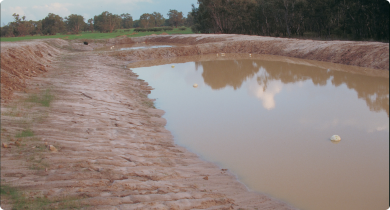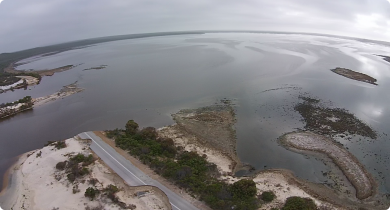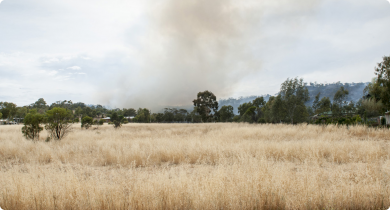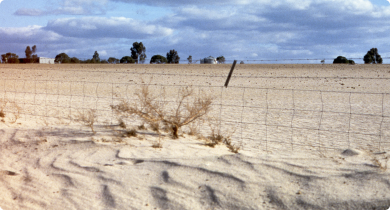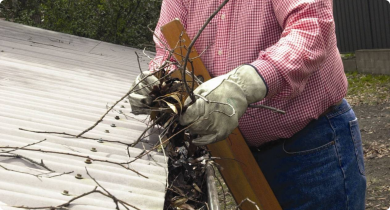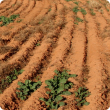Climate, land & water
Western Australia’s agriculture sector needs access to productive soil and water resources for growth and profit. However, the sector must compete with increasing resource demands from all sectors of the community, and the pressures of a changing climate. The Agriculture and Food division of the Department of Primary Industries and Regional Development supports agriculture by providing long-term management solutions, practical risk management strategies and tools to maintain and improve resource conditions, to meet the needs of industry and stakeholders. Agriculture and Food is also pioneering soil and water investigation of the state’s undeveloped areas to establish new irrigated agricultural industries.
Filter by search
Filter by topic
- (-) Remove Grains filter Grains
- (-) Remove Crops filter Crops
- Soils (63) Apply Soils filter
- Managing soils (41) Apply Managing soils filter
- Climate & weather (38) Apply Climate & weather filter
- Grains research & development (29) Apply Grains research & development filter
- Production & postharvest (24) Apply Production & postharvest filter
- Wheat (20) Apply Wheat filter
- Soil management (20) Apply Soil management filter
- Soil acidity (20) Apply Soil acidity filter
- Frost (19) Apply Frost filter
- Soil constraints (17) Apply Soil constraints filter
- Canola (12) Apply Canola filter
- Water repellence (12) Apply Water repellence filter
- Measuring and assessing soils (11) Apply Measuring and assessing soils filter
- Climate change (11) Apply Climate change filter
- Liming (11) Apply Liming filter
- Lupins (10) Apply Lupins filter
- Pulses (9) Apply Pulses filter
- Pastures (8) Apply Pastures filter
- Livestock & animals (7) Apply Livestock & animals filter
- Barley (7) Apply Barley filter
- Field peas (6) Apply Field peas filter
- Waterlogging (5) Apply Waterlogging filter
- Soil salinity (5) Apply Soil salinity filter
- Soil nutrients (5) Apply Soil nutrients filter
- Water (4) Apply Water filter
- Water management (4) Apply Water management filter
- Soil compaction (4) Apply Soil compaction filter
- Soil carbon (4) Apply Soil carbon filter
- Horticulture (4) Apply Horticulture filter
- Livestock management (4) Apply Livestock management filter
- Land use (4) Apply Land use filter
- Pests, weeds & diseases (4) Apply Pests, weeds & diseases filter
- Plant nutrition (3) Apply Plant nutrition filter
- Resource assessment (3) Apply Resource assessment filter
- Oats (3) Apply Oats filter
- Livestock species (3) Apply Livestock species filter
- Irrigated crops (3) Apply Irrigated crops filter
- Grains Research & Development (3) Apply Grains Research & Development filter
- Sowing (2) Apply Sowing filter
- Weeds (2) Apply Weeds filter
- Pasture management (2) Apply Pasture management filter
- Fertiliser (2) Apply Fertiliser filter
- Crop weeds (2) Apply Crop weeds filter
- Drought (2) Apply Drought filter
- Bees (1) Apply Bees filter
- Agribusiness Food & Trade (1) Apply Agribusiness Food & Trade filter
- Agricultural exports (1) Apply Agricultural exports filter

